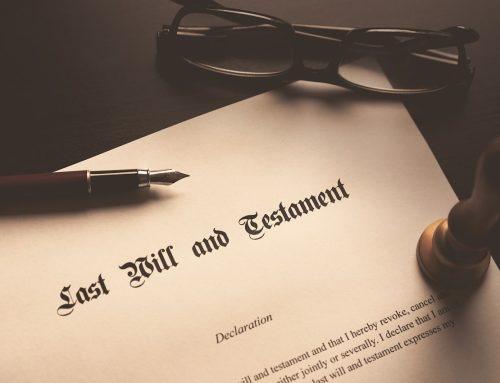Who Do I Trust? Me!
Who Do I Trust? Me!

What Is A Trust?
There are generally two main categories that trusts can fall into: revocable and irrevocable. For the purpose of this article, when we refer to a trust we are referring to a living revocable trust.
The Law Dictionary defines a trust as “an equitable or beneficial right or title to land or other property, held for the beneficiary by another person, in whom resides the legal title or ownership, recognized and enforced by courts of chancery…
An obligation arising out of a confidence reposed in the trustee or representative, who has the legal title to property conveyed to him, that he will faithfully apply the property according to the confidence reposed, or, in other words, according to the wishes of the grantor of the trust.”
To rephrase in a simpler manner, think of a Trust as an extension of a person like a robot. This robot has ownership of property, such as a home or a bank account, which it’s responsible for.
The owner programs the robot how he or she wants their property to be handled for the sake of the beneficiaries (the people receiving some form of service from the robot such as receiving money each month or being allowed to live in the home).
Even though the robot has been programmed to manage the property, it needs someone to tell them when to do it. That’s where the Trustee comes in.
Think of a Trustee as the person activating the robot. The Trustee will be responsible for when the robot will activate its programming so that the beneficiaries will receive the benefits of the Trust. As a result, the Trustee should be someone that the owner of the Trust should be able to, well… trust.
Can I Be The Trustee Of My Own Trust?
Yes! Who better to confide in than yourself? That being said, you as the owner of your Trust should also consider having a backup Trustee in the event you become incapacitated or die. That way, your Trust will continue to service the beneficiaries.
Can I Make A Trust For My Own Benefits? Can I Be My Own Beneficiary?
Absolutely. As previously mentioned, a revocable Trust is an extension of a person.
You can create the Trust to follow guidelines you set, including such examples as how you, as the beneficiary, would like to be treated during times where you are incapacitated, or limit how you would like your beneficiaries to receive monetary benefits during times where they have a number of creditors targeting the assets.
This article is written by Florida attorneys and only considers Florida law in place at the time of publication. This article should not be relied upon as a substitute for legal advice and one should always consult with an attorney in their state before making any legal decisions.
At The Estate Plan, we take pride in serving our clients with compassion, competence and creativity. After all, we’re all unique. It takes a special comfort and confidence to trust someone to handle protecting one’s family and possessions. We appreciate being that person for so many families. If you are interested in coming in for a consultation, do not hesitate to contact us at (305) 677-8489.
Have questions about how to get started on your estate plan or estate needs?
Have questions about how to get started
on your estate plan or estate needs?
Contact the experienced estate planning professionals at The Estate Plan
by calling us at (305) 677-8489.
Contact the experienced estate planning professionals at The Estate Plan by calling us at
(305) 677-8489.

















